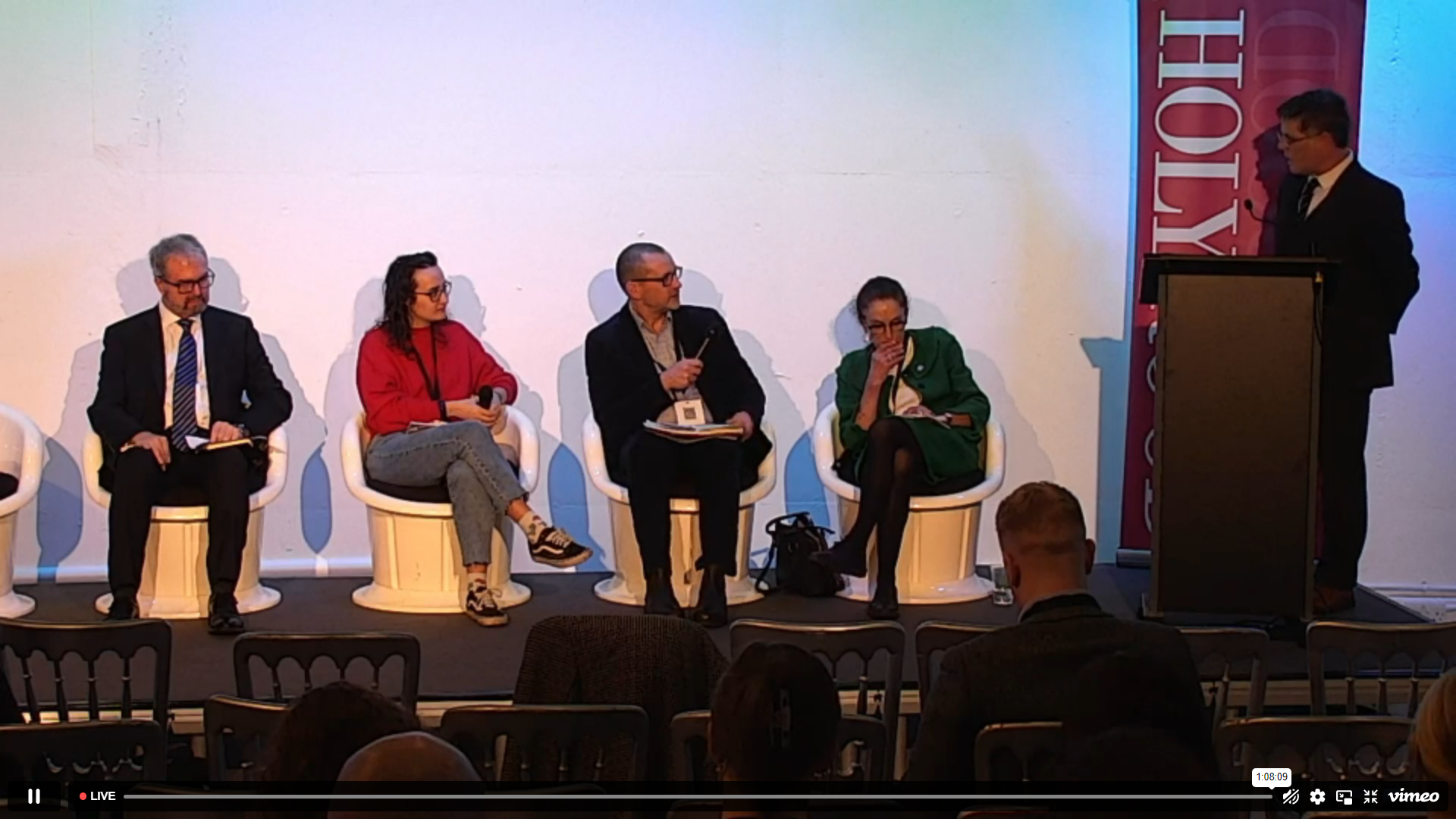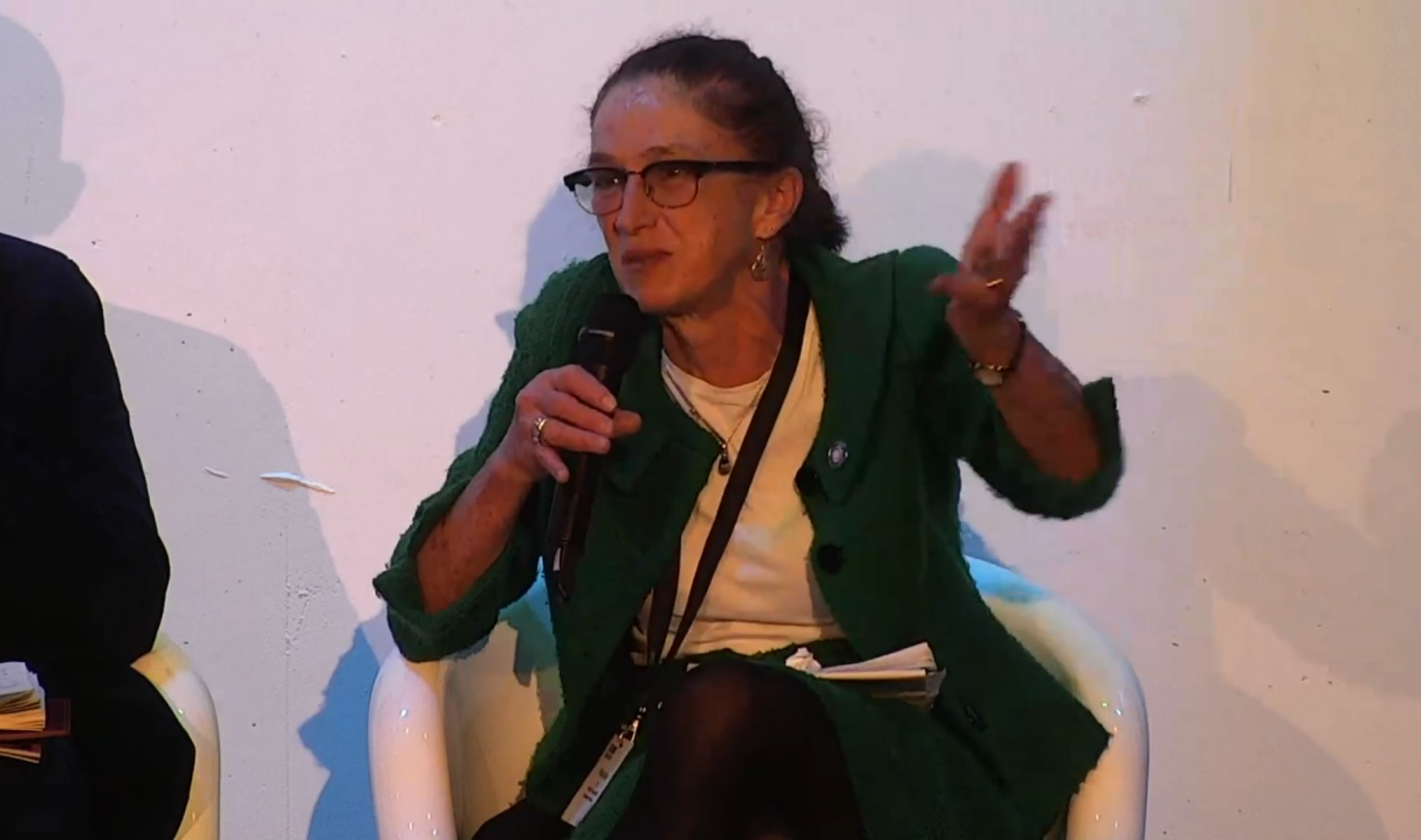Holyrood Events hosted a Climate Emergency Summit in Glasgow last week, opening with a big question about Scotland’s role as a global climate leader. A poll showed that just over half of the audience thought Scotland was showing leadership in the climate space, but what does that mean in practice, and what more could we be doing?
Tackling the climate crisis is a two-pronged challenge for Scotland. We need to urgently address and reduce our own emissions which involves systemic changes to energy production, transport infrastructure, buildings and manufacture – all discussed in great detail at the conference. But we also need to do our bit internationally, particularly given the emissions we created are having a profound affect on countries who played no part in creating the crisis. This global aspect was given just 40 minutes of discussion time at the conference but, fear not, one of the panelists was our own Frances Guy, CEO of the Alliance, who was not going to let an opportunity to call for more leadership go amiss!

Frances was joined on the panel by Ronnie Quinn from NECCUS, Iain Gulland from Zero Waste Scotland, and Abi Gardner from NatureScot and Climate 2050 Group.
Abi pointed out that climate leadership is for everyone. As the only non-CEO on the panel (and one of only a handful of under 30 speakers throughout the whole conference) she emphasized the importance of empowering everyone to act and how we can be inspired by the proactivity and effectiveness of young people.
Iain discussed Scotland’s leadership in the circular economy. We have a Minister, a strategy and a Bill in progress, which is all positive but we can, of course, do more. One issue is that much of what Scotland consumes comes from overseas. Scientists have said we are consuming double what could be considered a sustainable amount in terms of carbon impact. Reducing consumption, and being smarter about consumption, really needs to be discussed.
If we continue to consume the way we are, we are creating injustices around the world, whether that’s economic or social. We need to seriously understand where the materials are coming from to support our own industries. As well as creating carbon emissions, our continued over exploitation is also damaging biodiversity globally. We want to be proud global citizens and that means truly considering our global impact.
The Alliance wholeheartedly supports the idea of a better understanding of what we consume, and we really need to be including our global consumption footprint in our national targets.
Ronnie spoke about the Just Transition Commission and how Scotland is showing leadership by taking the impact of the transition away from fossil fuels seriously. Later in the day, others pointed out the importance of this work – if Scotland can make the transition fairly and equitably with robust consultation and involvement with those impacted, then others will follow.
Frances called for a global just transition. We have to do our bit (and we have the responsibility of historical emissions which makes doing our bit even more necessary), but we also have to help other nations to achieve a just transition too.

Frances was very clear that the climate crisis is hitting communities right now. The last 12 months have shown extreme suffering, just look at Pakistan with 30% of the country under water. Pakistan is an organised country, which was prepared for this, but still the effects have been insurmountable. Frances acknowledged the good role that Scotland has played with its Climate Justice Fund, and the signal of support for loss and damage with a pledge at COP26, which was increased this year. But the £5million allocated for loss and damage has been taken from the Climate Justice Fund, so it was already going to be given to people on the frontline of the crisis. Just three weeks before COP27, the First Minister herself had said that loss and damage funding should be new and additional. So unfortunately our leadership only goes some way.
Frances recommended watching COP27 speeches from Al Gore and Mia Mottley, the Prime Minister of Barbados, who both pointed out that access to private finance in the global south is key to making the green transition. The interest rates they are paying are astronomical, and there is more that finance companies based in Scotland could do to support.


